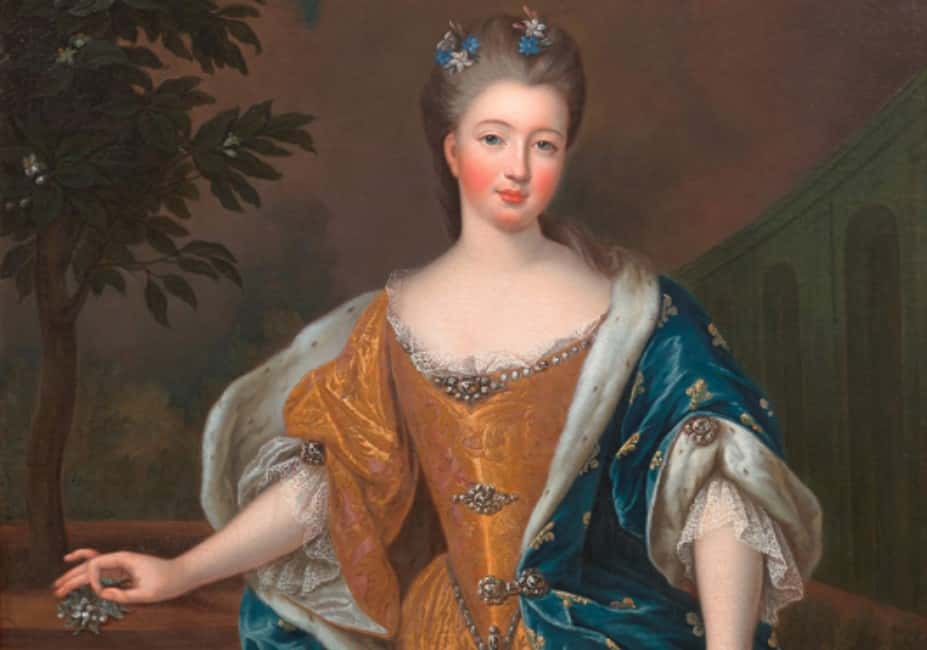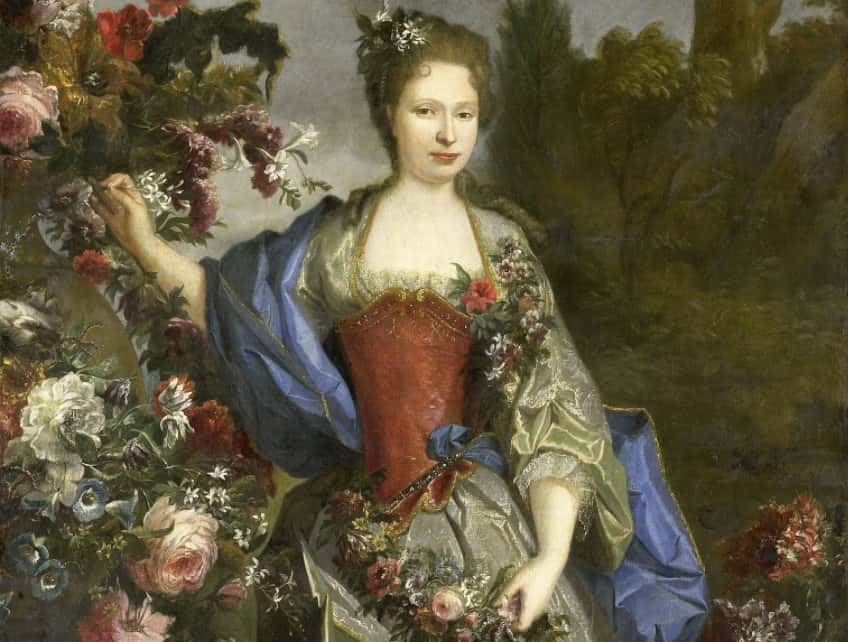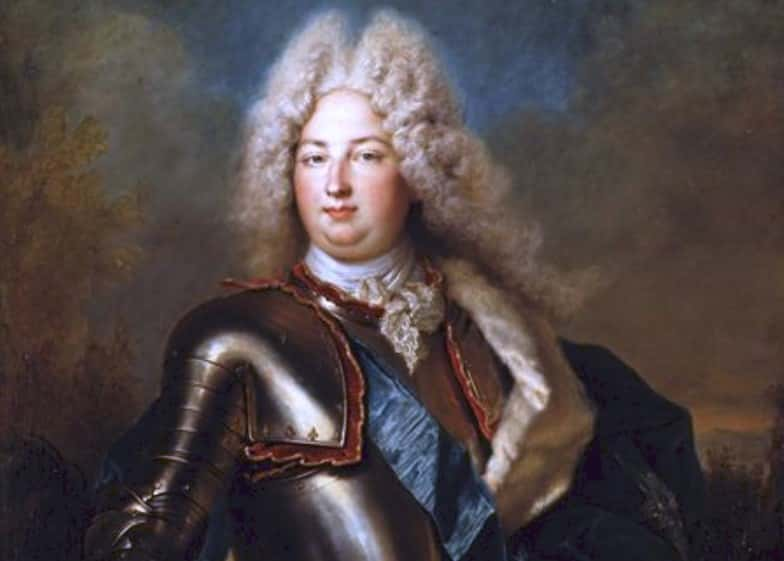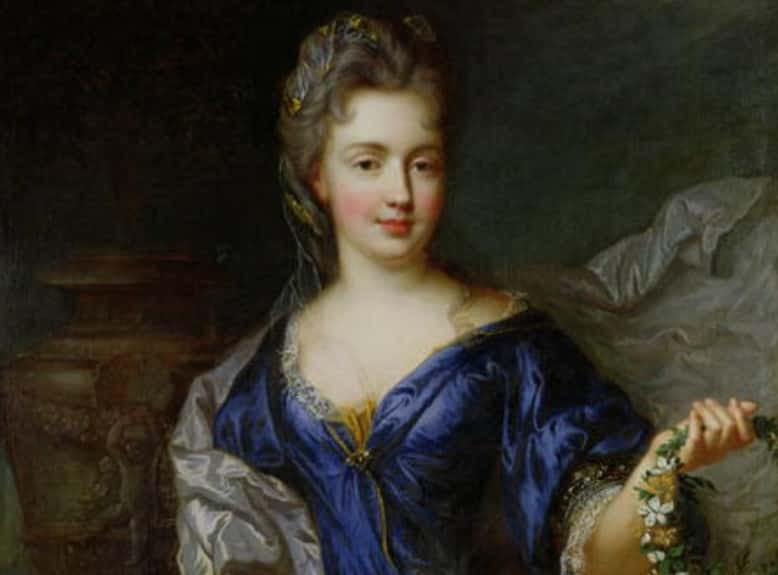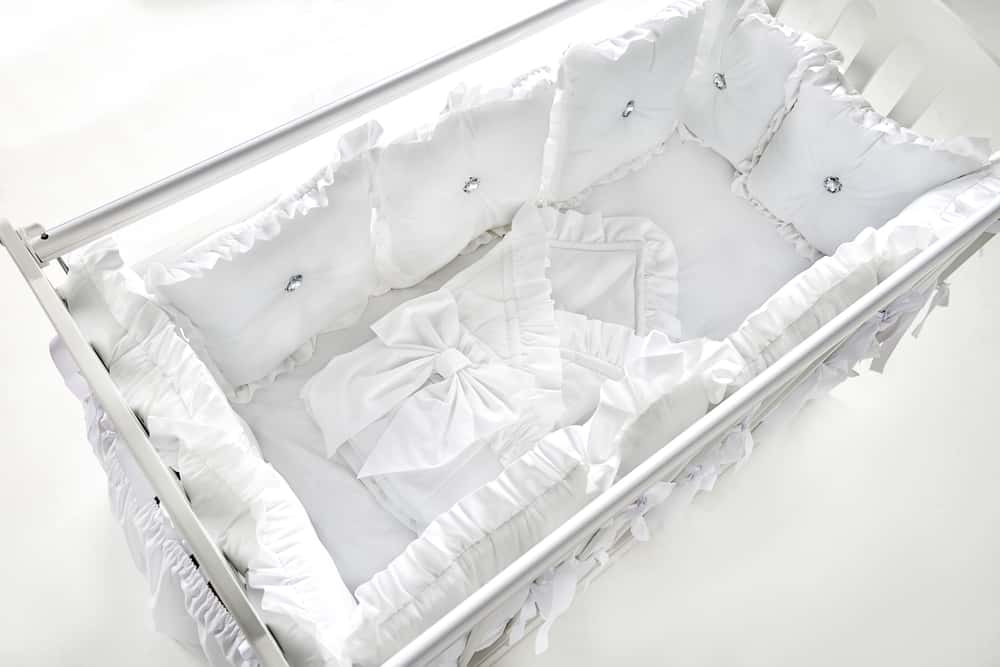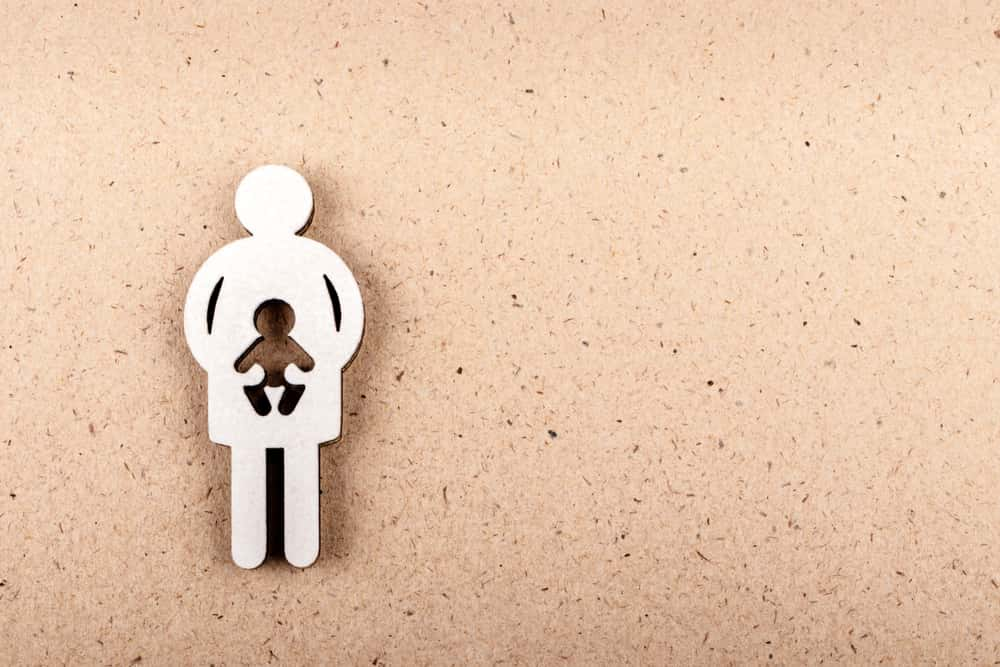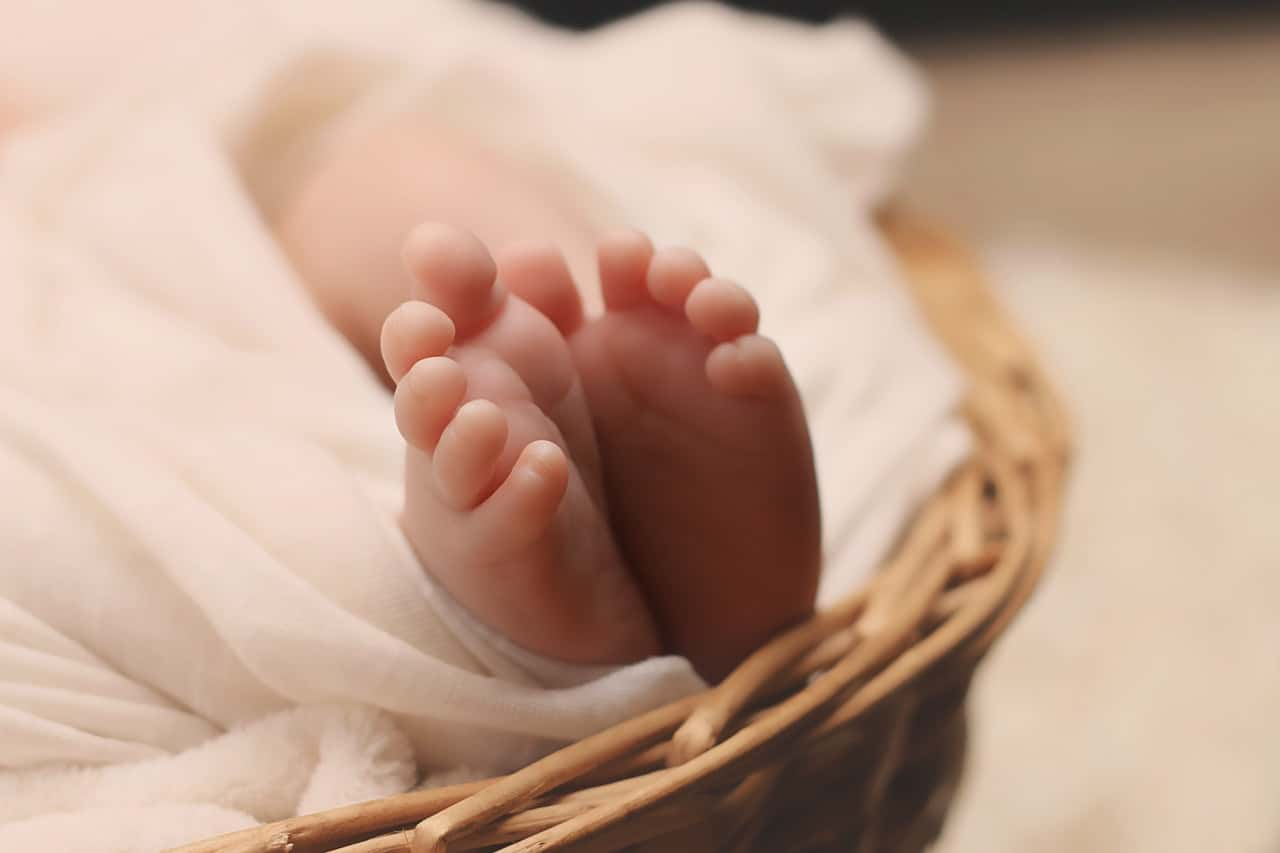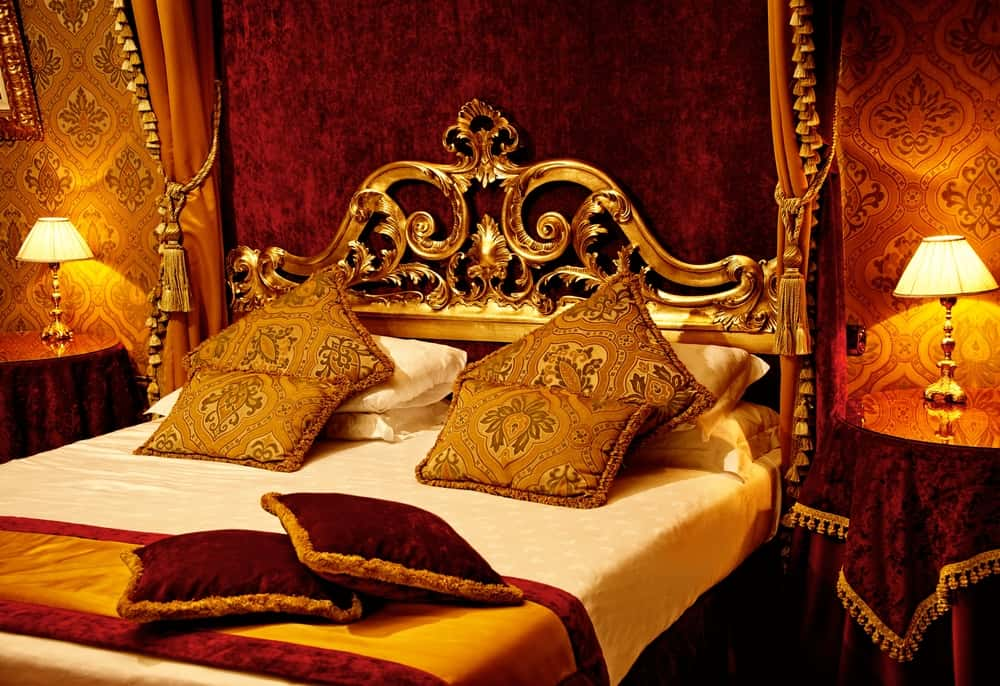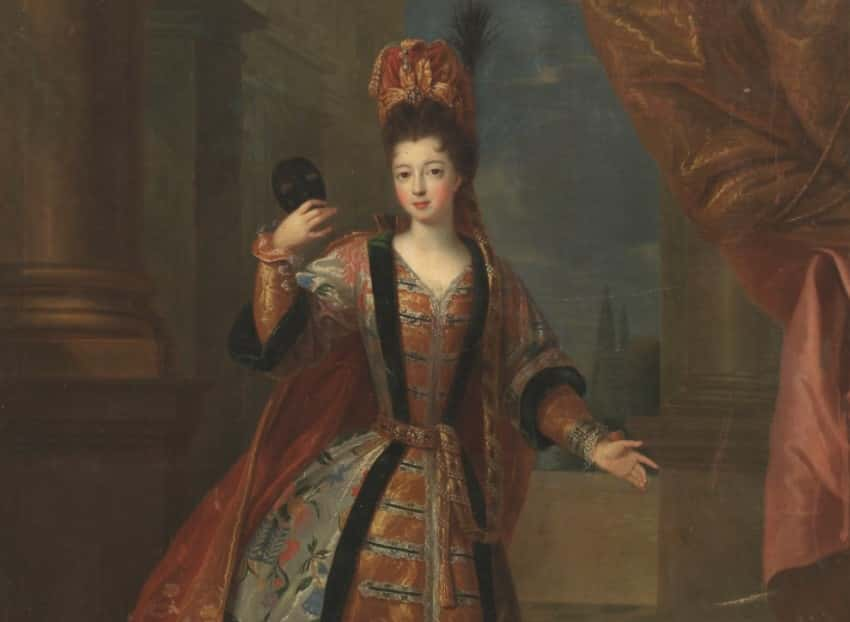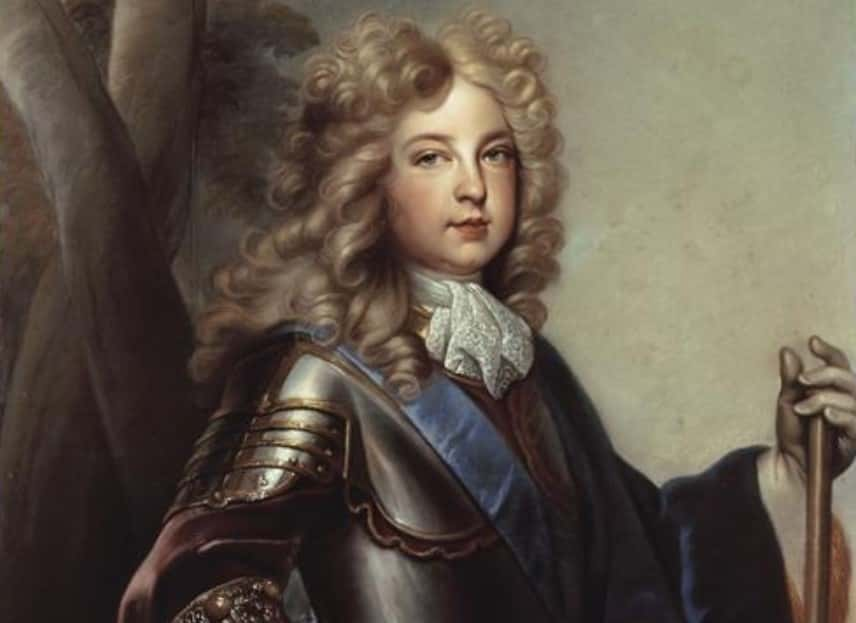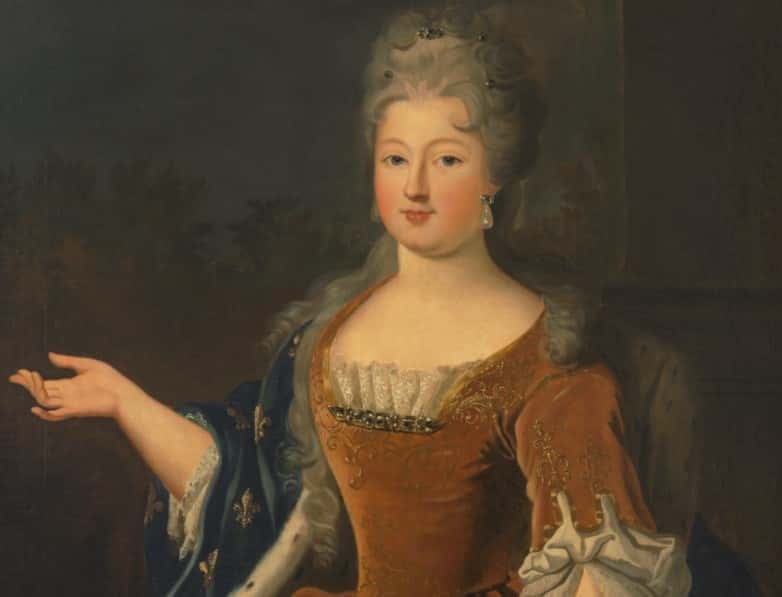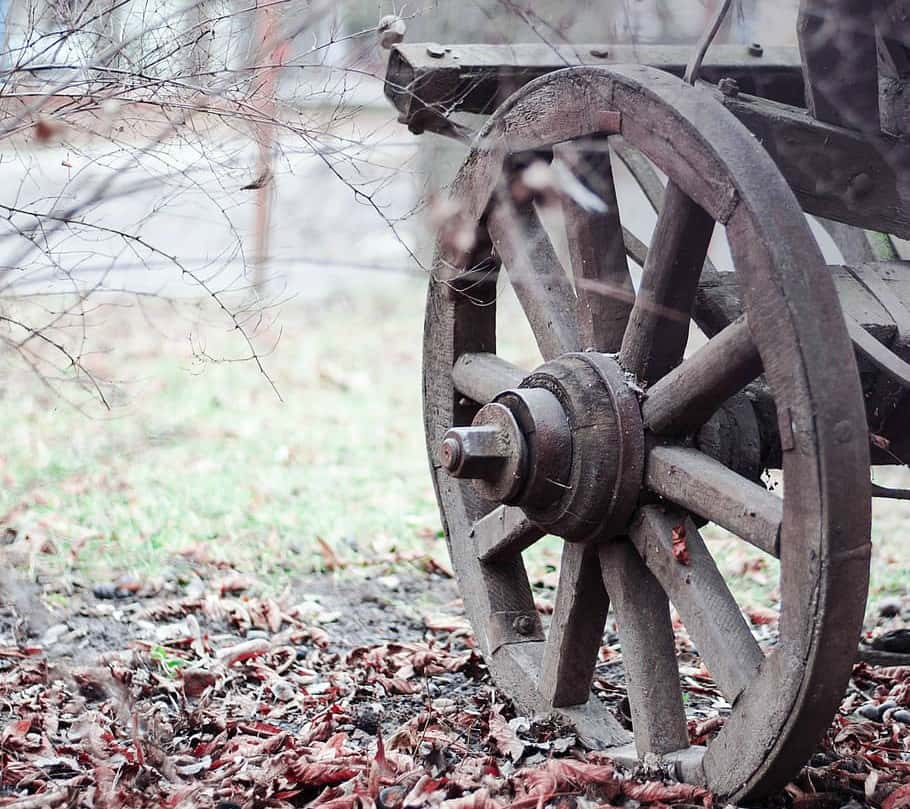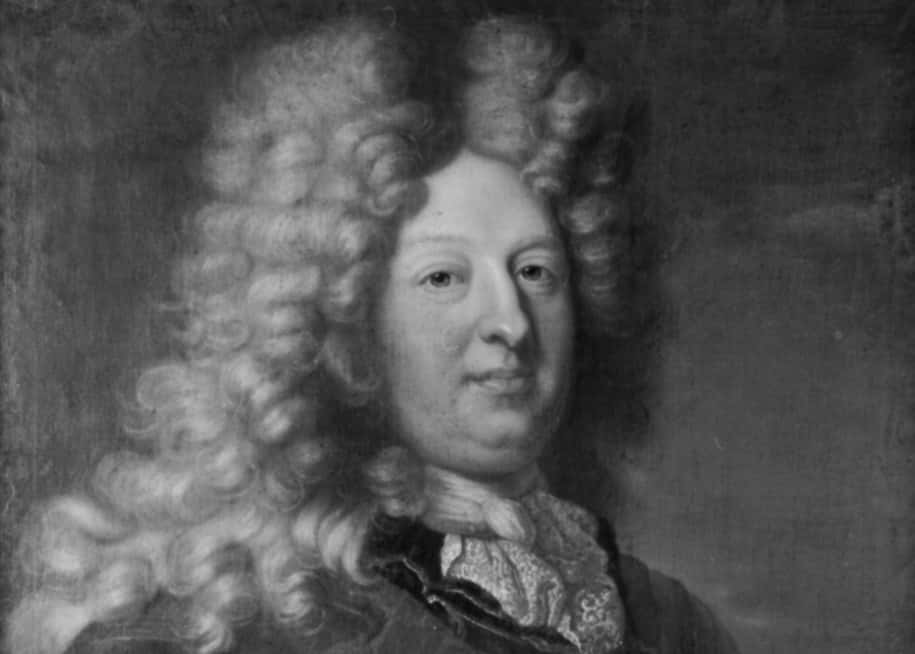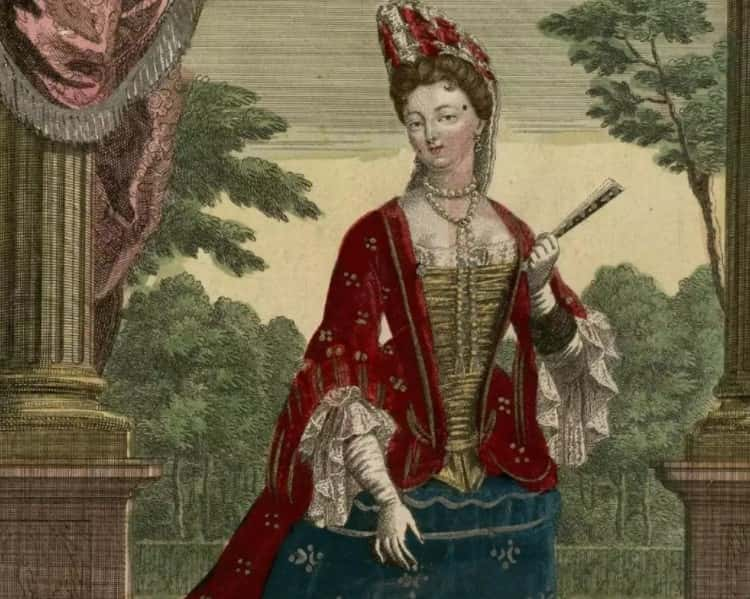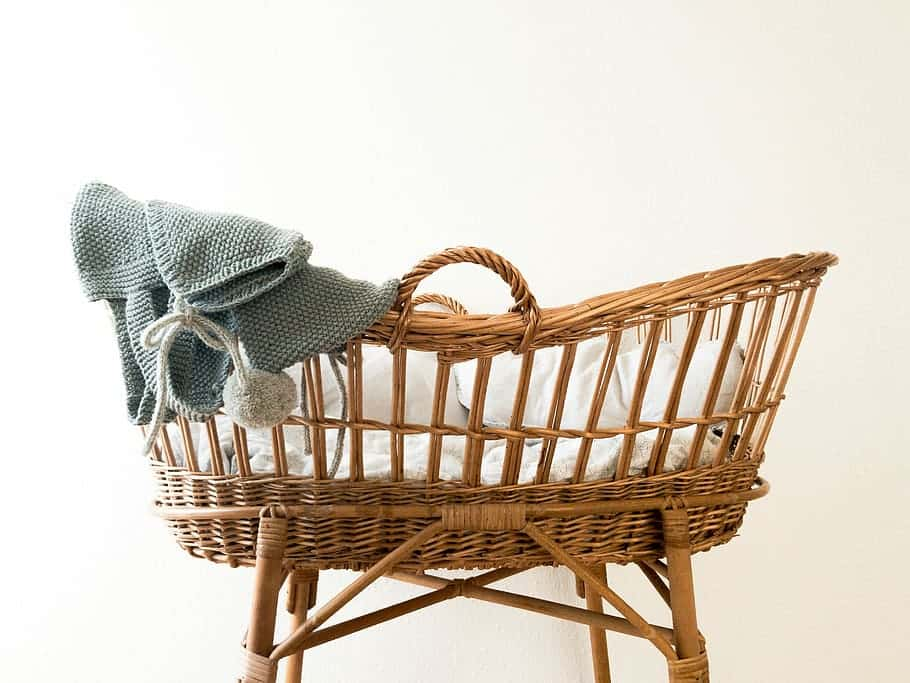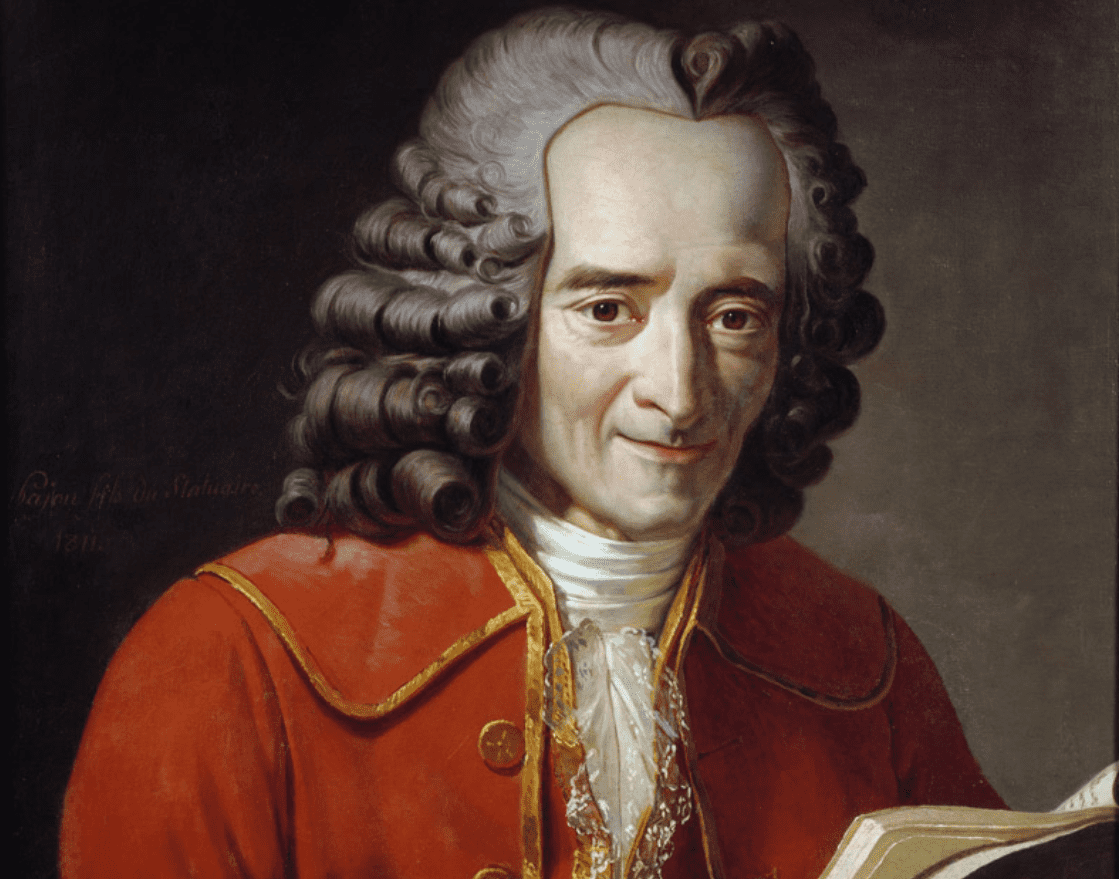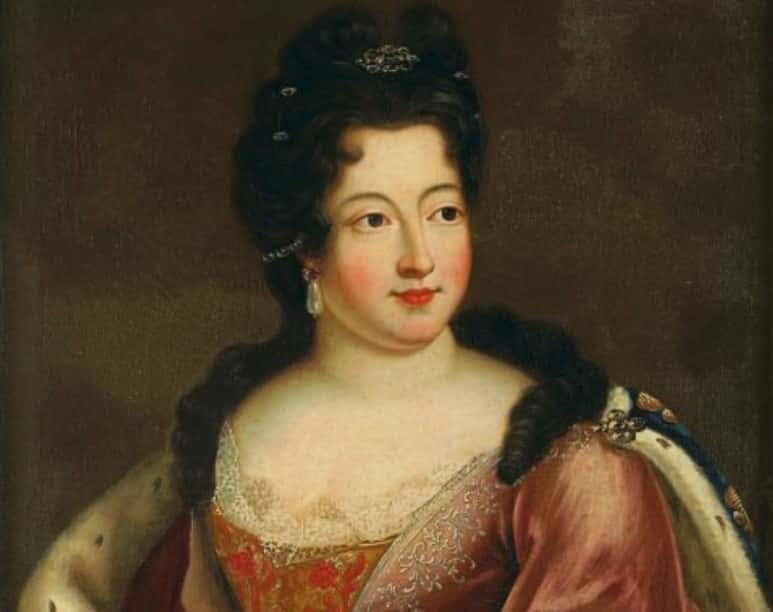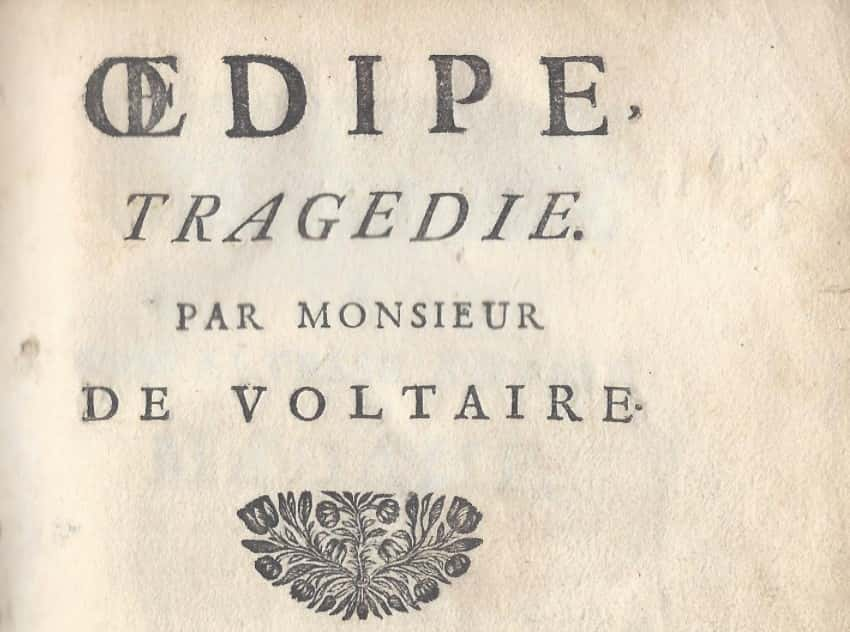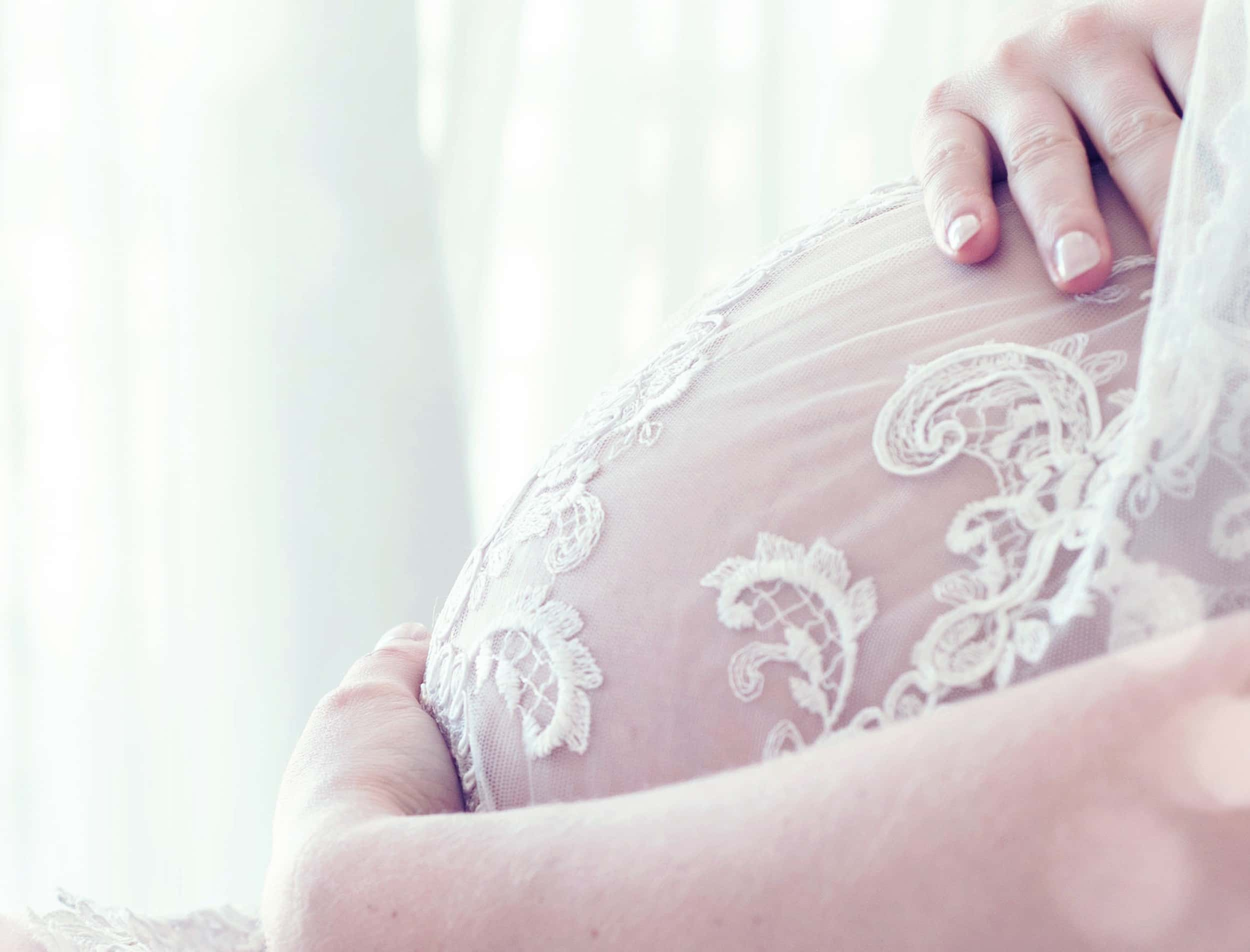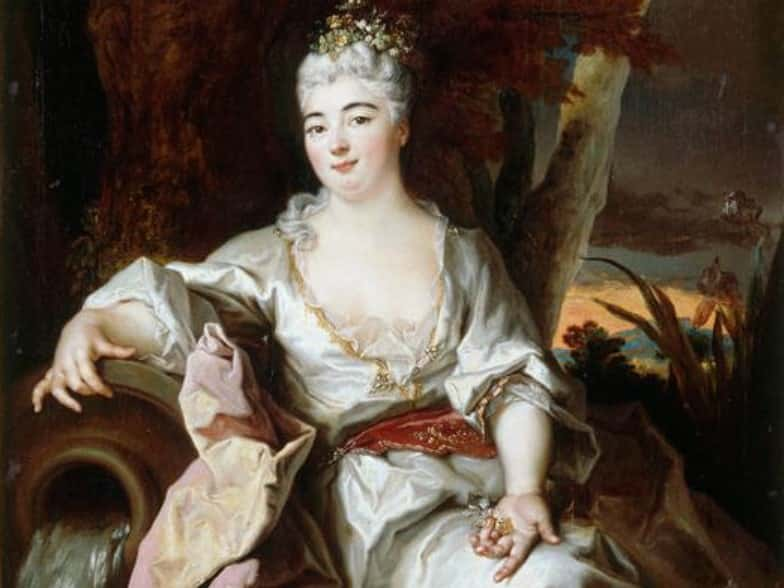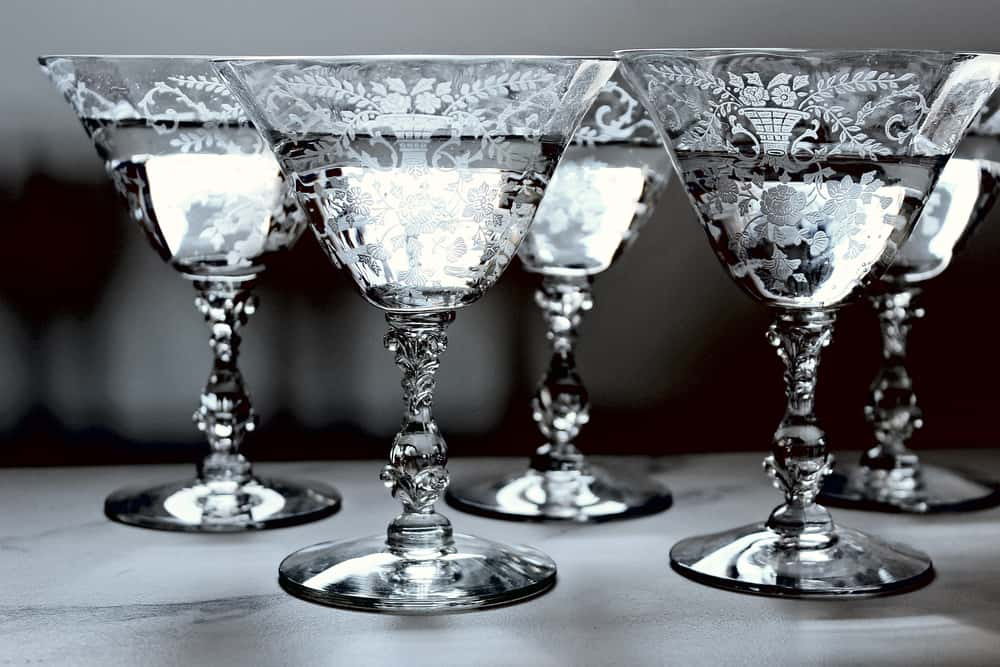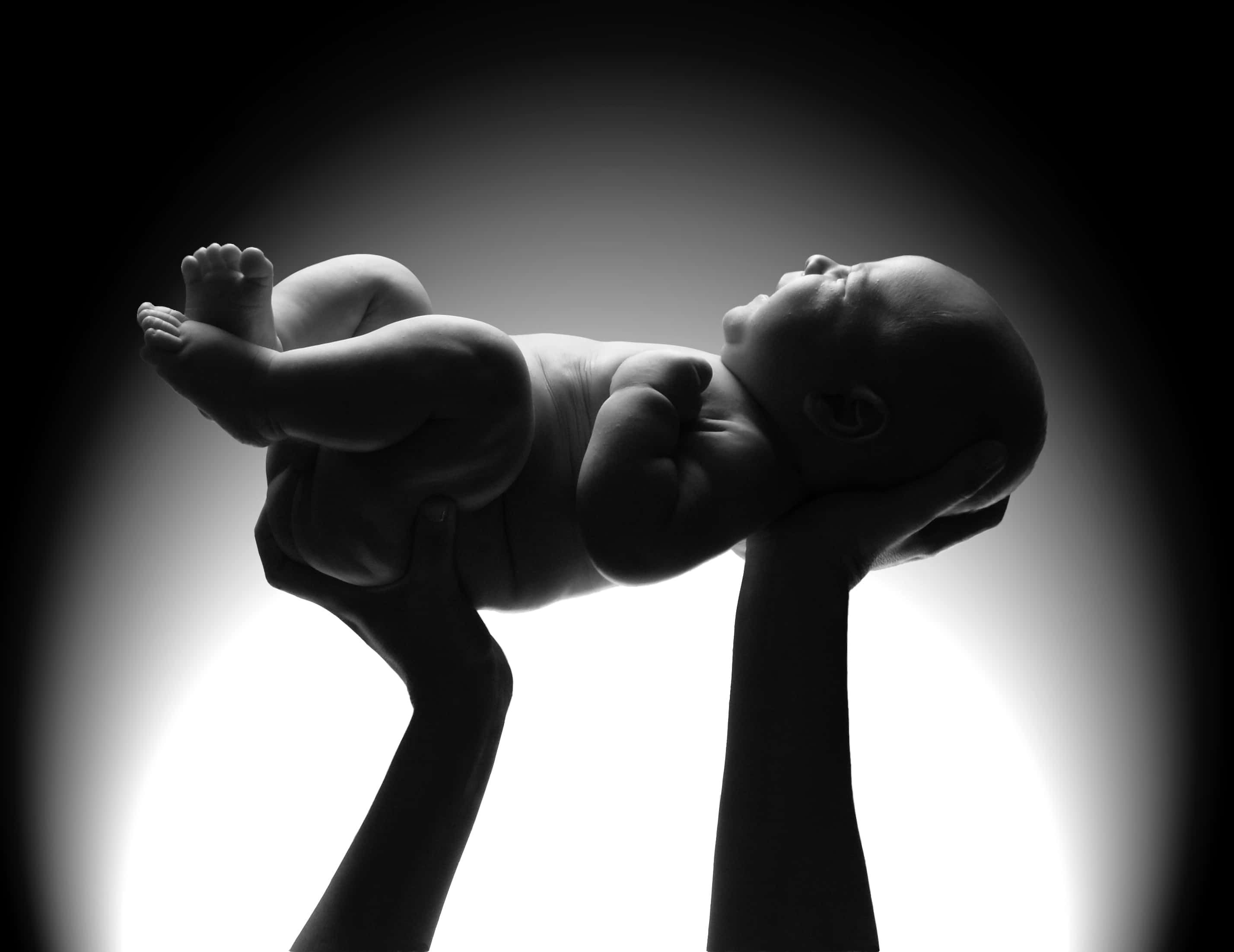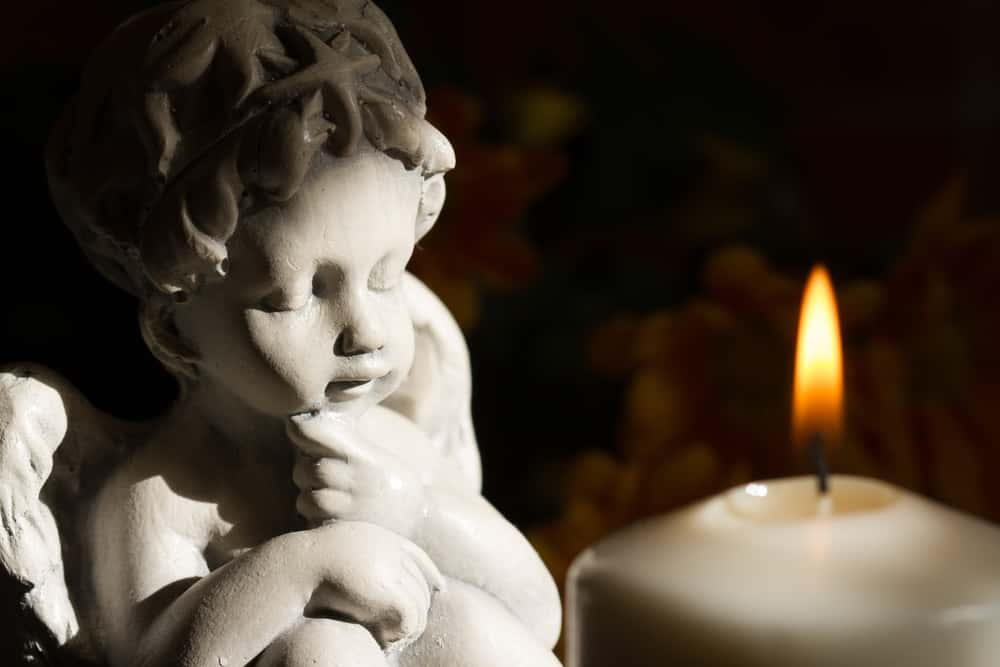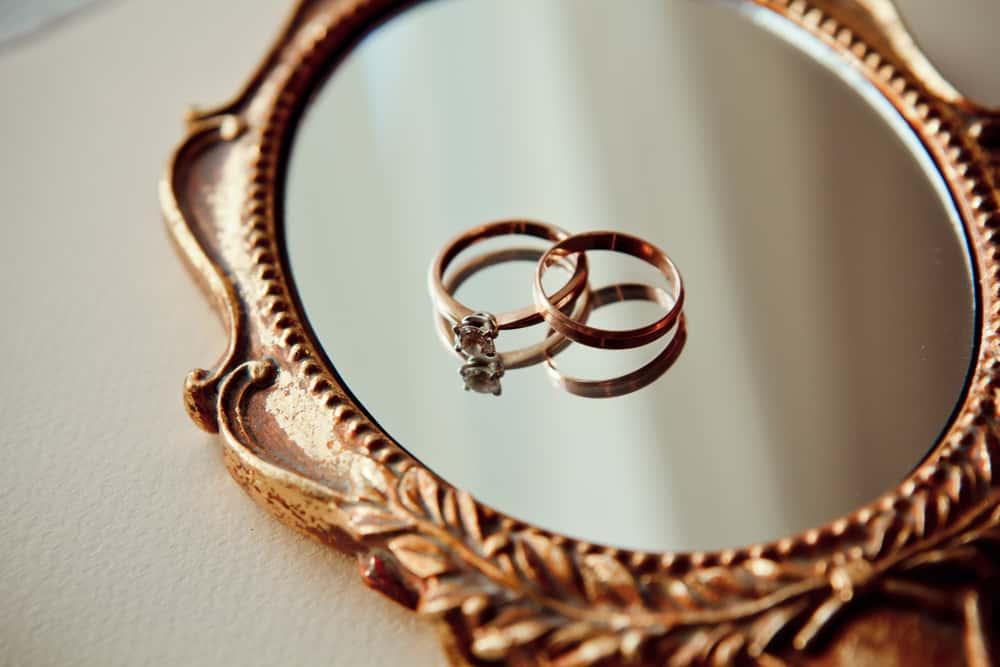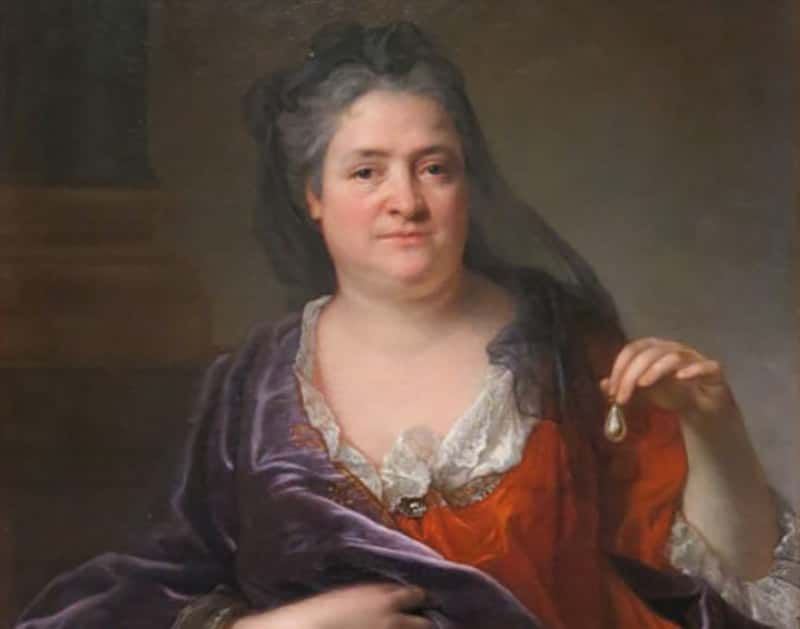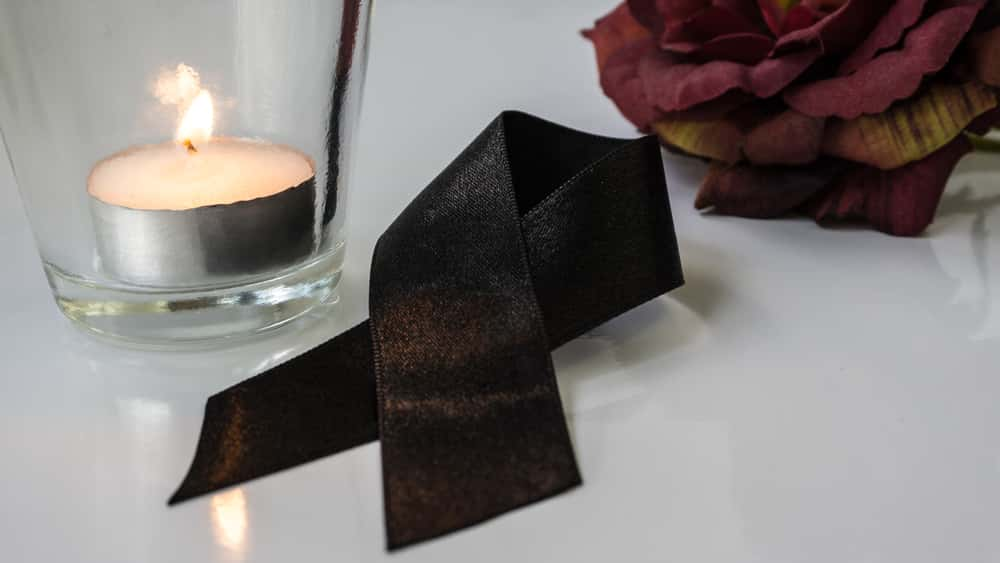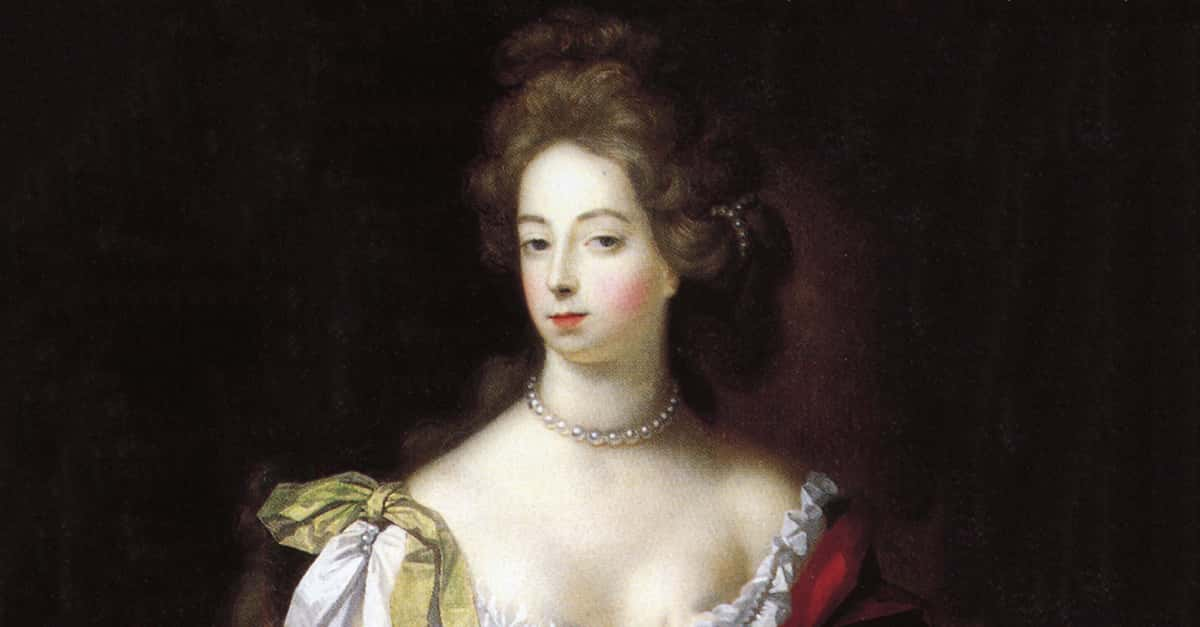Louise Élisabeth, Duchess of Berry was the 18th-century French princess whose scandalous—albeit short—life had the city of Paris completely enthralled. From her six unsuccessful pregnancies to her exhaustive list of lovers (including, maybe, her own father), she was the train wreck that no one could pull their eyes away from.
1. Her Family Was “Close”
Louise Élisabeth was born in August of 1695 to Phillippe II, Regent of France and Françoise-Marie de Bourdon. Her parents were first cousins through King Louis XIV. Creepy as that was, it wasn’t the only inappropriate family relationship in Louise’s sordid story. In fact, it was probably the least scandalous thing about her.
2. She Had A “Big” Nickname
From the time she was born, Louise Élisabeth had the honorary title of Mademoiselle d’Orléans. Her full name and title were too a bit too much of a mouthful so she got the playful nickname “Joufflotte.” That translates roughly to “chubby.” Joufflotte developed something of a habit later on for putting on, shall we say, baby fat.
3. She Barely Survived
Joufflotte was never the image of health, even if she was plump as a peach. When she was just six years old, she fell terribly ill. The mysterious illness seemed poised to take her life prematurely, but her father nursed her back to health, staying at her bedside all day and all night. Joufflotte ended up recovering, and her family heaved a sigh of relief. Little did they know, that scare was just the beginning.
4. She Was A Little Horse
Joufflotte’s paternal grandmother, Elizabeth Charlotte of the Palatinate, saw her resilience in the face of terrible illness. She wrote that Joufflotte “had entirely her own way, so that it is not surprising she should be like a headstrong horse.” She might have been headstrong like a horse, but she was definitely not healthy like one.
5. She Had The Pox
Louise Élisabeth fell painfully ill once again. At the age of ten, she contracted smallpox and this time it definitely seemed like she wouldn’t make it. In fact, depending on who you ask, she didn’t make it at all. The little Joufflotte was presumed dead for six hours. Fortunately, they did not cremate the girl. That would have been awkward.
6. She Married Young
Having miraculously survived not one but two close encounters with the Grim Reaper, Louise Élisabeth's parents were eager to get her married before it was too late. They arranged for Joufflotte to wed Charles, Duke of Berry when she was just 14 years old. The Duke of Berry was ten years her senior at the time. Despite the age difference, Joufflotte seemed the more “experienced” of the two.
7. Her Cousin Abandoned Her
After her marriage, Joufflotte’s first cousin, Marie Anne de Bourbon, became her lady-in-waiting. Marie Anne served Joufflotte faithfully for years, but eventually had to resign in protest. The young duchess was a little too prone to scandal and disaster for her cousin’s liking. One early incident, in particular, caused Marie Anne to blush.
8. She Was Born To Be Wild
Louise Élisabeth attended what was supposed to be a sophisticated dinner party with the Duchess of Burgundy in a suburb of Paris. Much to the horror of the other guests, however, Joufflotte became so intoxicated that she had to be carried back to Versailles. Her woozy behavior nearly caused a scandal at court, but Marie Anne managed to hush it up before the king could find out.
Such a humiliating scandal would make most people change their ways. Louise Élisabeth was just getting started.
9. She Suffered An Early Loss
Louise Élisabeth's hard and fast lifestyle took its toll before long. One year into her marriage, Joufflotte became pregnant with her first child. However, before she could celebrate being a mother, tragedy struck. Joufflotte delivered a stillborn girl at the Palace Fontainebleau. The loss was painful—but she had a ready scapegoat to blame: her loathsome husband, the Duke of Berry.
10. She Made A Difficult Journey
Louise Élisabeth had never been in good health, so a pregnancy was a lot to bear. As she approached full term, her doctors advised her to stay either in Versailles or the Palais Royal. Her husband, however, insisted that she make the voyage to Fontainebleau for the delivery. The arduous trip was rough on the very-pregnant Louise Élisabeth, and we all know what the final result was. But that wasn't the only knock against the Duke...
11. She Was In A Terrible Accident
Not only did Louise Élisabeth's husband, the Duke of Berry, demand that she travel from Versailles to Fontainebleau, but had her do so by barge instead of by carriage. While the water might have been smoother than the cobblestone roads, the ride was nonetheless dangerous. In fact, she would suffer her third too-close-for-comfort bush with the Reaper.
12. She Nearly Drowned
As they made their way to Fontainebleau, Louise Élisabeth's barge hit a pier and began taking on water. The barge very nearly sank and Joufflotte’s big, pregnant belly was more like a dumbbell than a floatation device. The duchess nearly drowned in the incident—it’s like the Duke of Berry wanted his wife to suffer. Their marriage had seemed like a fairy tale at first. Now, it seemed like more of a horror story.
13. She Blamed Her Husband
When Louise Élisabeth arrived in Fontainebleau and delivered her stillborn daughter, the doctors blamed the journey. They claimed that the stress of traveling and the accident had all been too much for the near-born child. Joufflotte, however, walked it off like a summer breeze and went right back to her antics. Turn down for what?
14. She Had A Baby Boy
Louise Élisabeth gave the whole pregnancy thing another try in 1712, and the following March she delivered a happy, healthy boy. Well, not exactly...he was happy, but definitely not so healthy. Not four months she had given birth, the poor infant began convulsing uncontrollably. He passed in June of that year. Such a tragic loss, so soon after her first stillbirth, would have sent most mothers into uncontrollable grief.
Joufflotte, on the other hand, got right back to her antics—but not before planning a disturbing funeral service for her boy.
15. She Tore Him To Pieces
Louise Élisabeth had her infant child buried…in pieces. In a chest-exploding episode pulled out of a chapter in Aztec history, Joufflotte had her son’s heart extracted and taken to a convent in Paris. The rest of him she had buried at a basilica in the Parisian suburbs. Now, this was a religious tradition in France at the time, but it's undeniably macabre.
16. She Was Charitable
In one act of kindness—because she wasn’t just the heart-snatching party girl—Louise Élisabeth looked after her son’s governesses. The attendants were probably more devastated by the loss than she was, and she wanted them compensated. Joufflotte ensured that her son’s governesses received their full salaries…for life. Sounds like a decent gig.
17. Her Husband Slept With Her Bestie
The Duke of Berry must have been sick and tired of his wife’s inability to successfully give him a child. Later that year, he took one of Joufflotte’s chambermaids as his mistress. As if that insult wasn’t enough, the affair was public knowledge. Louise Élisabeth took the insult to heart—she had, after all, carried two of his children, even if they didn’t make it.
And she knew just how to get back at her husband.
18. She Got A Man Of Her Own
Louise Élisabeth had been carrying on an affair of her own—well, several of her own, to tell the truth—with a certain Monsieur de Salvert. But when her husband took one of her chambermaids as his mistress, she had to upgrade to the mysterious, but no doubt dashing, Monsieur La Haye. She was going to make the duke very jealous. And very, very angry.
19. She Flaunted Her Love
Joufflotte practiced more discretion in her extramarital affairs than she did in her excessive partying. Which is to say that she kinda, sorta tried to keep them on the down-low. Until now, that is. She had managed to keep her original affairs relatively quiet—but her affair with La Haye was about revenge, and she flaunted it. She couldn’t have predicted the duke’s chilling reaction.
20. She Nearly Joined The Nunnery
The Duke of Berry was outraged at his wife’s new affair—when he wasn’t, himself, bosom-deep in infidelity. Jealous as he was, he was probably more upset at how brazen she had become. In retaliation, he threatened to have her shipped off to a convent. Believe it or not, a life in the nunnery was the least drastic threat Louise Élisabeth faced.
21. She Was A Kickboxer
Louise Élisabeth definitely wouldn’t have had a good time at a convent. She wouldn’t have been able to party, wearing a habit would have been uncomfortable and then, of course, there was that vow of celibacy. None of that screams "Joufflotte," but at least it was better than hanging around her husband a second longer.
Their broken relationship reached a peak when the Duke viciously kicked her in public for her indiscretions. She had to get away, no matter the cost.
22. She Made A Secret Plan
Louise Élisabeth had had enough of her husband. He was responsible for the loss of their first child, insulted her honor (a party girl has to have her honor), and took to physically attacking her in public. Joufflotte developed a secret plan to rid herself of the wretch once and for all. He wasn’t going to be sending her anywhere.
23. She Was Planning A Daring Escape
Joufflotte plotted with her lover, the roguish Monsieur La Haye, to make a daring getaway. The forbidden lovers hatched a scheme to escape France for the Netherlands, where they could live free of her husband’s influence. Fate, however, had other plans for the Duke of Berry. Louise Élisabeth wouldn’t have to flee France, or even lift a finger, to get exactly what she wanted.
24. Her Luck Turned Around
Joufflotte’s husband, the silly Duke of Berry, suffered an accident while on a hunting trip. He sustained severe internal injuries from which he would never recover. In May of 1714, when the duke drew his last breath, Joufflotte officially became a dowager duchess. She was finally free to live as she wanted. If anything, her story up to now has been tame compared to what was coming next.
25. She Had A Mysterious Pregnancy
Seven weeks after Louise Élisabeth's husband passed, she once again gave birth. She had another baby girl but, sadly, the infant passed away only days later. It was another terrible tragedy—but, as always with Joufflotte, there were clouds of controversy. Considering the timing of the pregnancy, there were doubts as to who the baby’s father might have been. Doubts that would plague Joufflotte in scandal after scandal.
26. She Didn’t Like To Share
Louise Élisabeth moved into Luxembourg Palace to live out her widowhood. In a selfish act that would make her eternally unpopular, she closed the Luxembourg Garden to the public. In addition, she received a massive annual income from the state. Her selfishness would earn her the scorn of the people of Paris for years to come—but it didn't slow her down one bit.
27. She Was A Merry Mourner
After the passing of Louis XIV—her maternal grandfather and the King of France—Louise Élisabeth announced that she would be in mourning for six months. Of course, her idea of mourning had considerably fewer tears and considerably more cheers than everyone else’s. She quickly became a “merry widow,” hosting parties, attending balls, and gambling.
28. She Shut The Party Down
In the middle of her “mourning,” the Duchess Of Berry suddenly stopped partying and shut herself up in her palace. The official story she gave was that she was suffering from a cold. The truth, as always, was much more scandalous. Joufflotte was experiencing the pains of pregnancy. Her “clandestine confinement” became the subject of a whole lot of gossip in Paris.
29. She Became Tabloid Fodder
Joufflotte’s pregnancy so soon after her husband’s passing could only mean one thing: backlash. The 18th-century tabloids jumped on the story, comparing Louise Élisabeth to other “Jezebels” in history. There was even a song, written in 1716, about Joufflotte’s many, many, many failed pregnancies and her growing list of lovers. The tabloids had found a new target—and Louise Élisabeth would just keep giving them fodder.
30. She Was A Towering Woman
The following year, Louise Élisabeth was the subject of yet another scandal in the tabloids, this time involving a foreign royalty. She hosted the Russian Tsar Peter the Great on his visit to France. The tabloids reported that Joufflotte, in greeting the Russian ruler, was “stout as a tower.” That’s 18th-century slang for “ready to pop.”
31. She Was Voltaire’s Muse
The famous French writer, Voltaire, landed himself in hot water with the French authorities when he leveled an insult at the ever-pregnant dowager duchess. Voltaire called Joufflotte a, well, “good-time gal,” in less friendly terms. While his words were definitely true, the truth, as they say, hurts. Voltaire’s detainment got the tabloids involved again.
32. She Tried To Hide Away
Voltaire was right. Louise Élisabeth was, in all likelihood, pregnant again. She had confined herself to another one of her residences, Château de la Muette. While there, she gave up hunting and horseback riding, two things that are hard to do with a big, bulging baby belly. Once the tabloids got hold of the story, they were merciless.
33. She Got Too Big
The tabloids reported that Joufflotte was, as her nickname suggested, “chubby.” In fact, they alleged that she was so big from her latest pregnancy that they feared for her life. Is it still body-shaming if it’s true? Mean as the tabloids were, however, the songwriters were downright savage. Thank goodness they didn’t have radios.
34. She Inspired Song Lyrics
Joufflotte’s frequent pregnancies following her husband’s passing were a constant source of entertainment for Parisians. No one was having a better time, however, than the songwriters. If you ever thought that 18th-century French music was boring, look up the songs they wrote about Louise Élisabeth. Their explicit lyrics would make Biggie blush. Louise Élisabeth was under attack from all sides—and there was no end in sight.
35. Her Scandals Grew Bigger
Mean as those lyrics were, the gossip took a nearly seditious tone in the Christmas of 1717. The Duchess Of Berry's scandalous life expanded to include her father. Phillippe II had become the Regent of France following Louis XIV’s passing. With the change in the political winds, the rumor mill churned out a truly disturbing story.
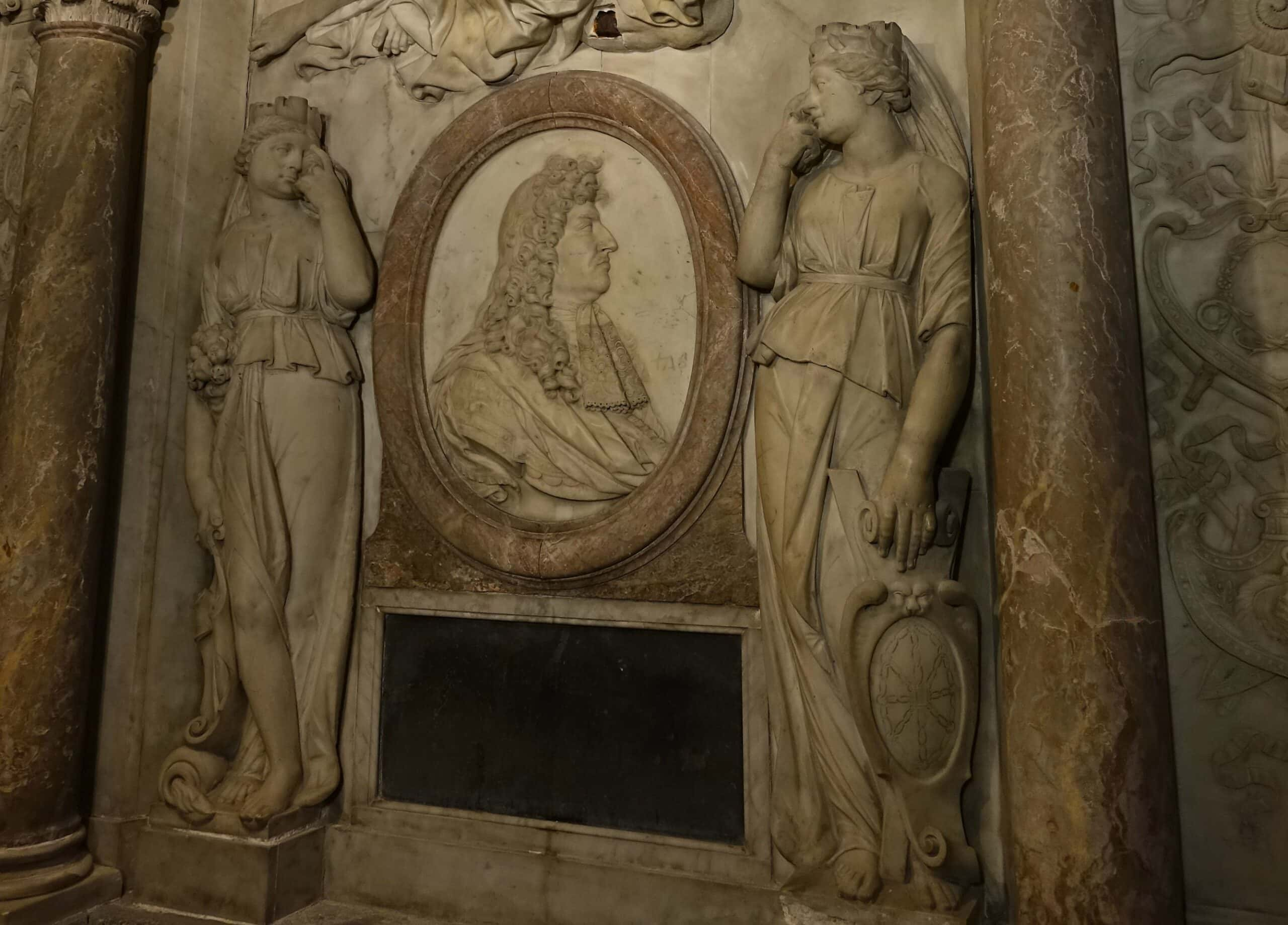 Wikimedia Commons, Guilhem Vellut
Wikimedia Commons, Guilhem Vellut
36. She Was “Close” With Her Father
In Christmas of 1717, a lyrical song appeared accusing the Duchess Of Berry of carrying on an intimate relationship with her own father, the Regent of France. “Lord, I will no longer have such lusty ways,” the lyrics go, “I only want Rions, sometimes my dad, here and there, my guards.” And just when Louise Élisabeth thought things couldn't get any worse, they did just that. When Voltaire added his famous wit to the story, the scandal became even bigger.
37. She Had A Starring Role
Voltaire again took aim at the Duchess Of Berry, reasserting the rumor that she had become pregnant by her own father. But simply reaffirming satirical gossip wasn’t enough for the literary titan. He took it one step further by writing his play Oedipus, a tragedy with uncanny real-world counterparts. For a tragedy, however, the crowd was doing more laughing than crying.
38. She Sat Front And Center
Quizzically, both the Duchess Of Berry and her father attended the premiere of Voltaire’s controversial play. Joufflotte’s father even congratulated Voltaire on the play’s early success. Either they didn’t see the irony of their attendance or, more likely, ignored it hoping that it would go away. But the whole situation was just too funny to ignore.
39. She Was The Butt Of The Joke
Louise Élisabeth's attendance was even more curious than her father’s. And, as if to make a joke of herself, she showed up to the premiere of Oedipus, you guessed it, pregnant! Her protruding baby belly made her the subject of a few jokes throughout the night and in the tabloids the following morning. Voltaire wasn’t done with her yet.
40. She Finally Got A Clue
About a year later, the Duchess Of Berry showed that she hadn’t learned anything from her previous experiences. She attended yet another showing of Oedipus while, yes, pregnant. A real scandal broke out when the crowd applauded a plot point that made allusions to Joufflotte’s rumored relationship with her father. It seems like the clueless duchess finally clued in—and she wasn't happy.
41. She Couldn’t Handle The Heat
The scandalous and hugely embarrassing episode inside of the crowded theater was too much for Louise Élisabeth and she fainted. The riotous crowd became excited at the prospect that Joufflotte might deliver her baby right then and there, in the middle of the theater. Fortunately, someone cracked a window and the Duchess Of Berry recovered—but the damage was done.
42. She Couldn’t Put The Bottle Down
Being constantly pregnant didn’t stop the Duchess Of Berry from partying. As long as she could stand (or waddle), then she figured that she could still go out. Well into her latest pregnancy, Joufflotte continued attending parties and downing more than her fair share of libations. All of a sudden, her multiple stillbirths are beginning to make sense.
43. She Had A Four-Day Birth-athon
Joufflotte finally went into labor one too many times. Her last pregnancy ended with a blood-soaked, four-day delivery of a baby girl. The ordeal nearly claimed her life. Seriously, how many potentially life-ending scenarios could this girl have? Anyhow, the ensuing scandal from her last birth would do her in for good.
44. She Had A Tough Choice To Make
Louise Élisabeth had carried on numerous affairs since—and, frankly, during—her marriage. Up until her last pregnancy, the Church had largely ignored her obvious transgressions since her husband’s passing, but this final scandal was too big to sweep under the afterbirth. The clergy gave the Duchess Of Berry a devastating ultimatum: They refused to give her the sacrament unless she disowned her daughter.
45. She Lost Another One
The Church’s demands to abandon her daughter wouldn’t matter to the Duchess Of Berry for long. Sadly, this final pregnancy would be no different than any of the others. The girl did not survive. This isn’t a professional medical opinion, but it sounds like Joufflotte could have benefitted tremendously from contraceptives. Or a good old-fashioned Las Vegas wedding.
46. She Had A Secret Marriage
Joufflotte sought to dampen the scandal by legitimizing her daughter’s stillbirth. She married the girl’s presumed father, her lieutenant of the guard, the Chevalier of Rion, in secret. Louise Élisabeth's father disapproved of the union, however, and banished Rion from Paris (jealous?). The poor girl just couldn’t catch a break.
47. She Was In Bad Shape
The Duchess Of Berry never fully recovered from her harrowing labor. That’s understandable; four days sounds like too long to push anything anywhere, far less a watermelon through a keyhole. Joufflotte contracted a fever and a chill sometime shortly thereafter and became bedridden. From the sounds of it, her condition was dire. No miraculous recoveries this time.
48. She Was In Tremendous Pain
Louise Élisabeth's grandmother visited her in her weakened state. She wrote, “[…]they determined to bleed her [Joufflotte] in the feet. They had some difficulty in persuading her to submit to it, because the pain in her feet was so great that she uttered the most piercing screams if the bedclothes only rubbed against them.” Mercifully, her suffering was near an end.
49. She Had One Last Surprise
Louise Élisabeth, the Duchess of Berry, passed at the tender age of 23, likely from complications arising from her sixth (documented) pregnancy. That's right—all that scandal and drama happened in less than a decade. Then, as if Voltaire himself had scripted her final moments, an autopsy revealed something tragic. Louise Élisabeth was a full two weeks pregnant at the time of her demise.
50. She Made Her Last Headline
Much like her son, Joufflotte would rest in pieces rather than in peace. A close family friend had her heart interned at the Val-de-Grâce church in Paris alongside her firstborn’s. The rest of her remains, the family had buried in the Basilica of Saint-Denis in the outskirts of Paris. Her scandal-filled days had finally come to an end.

